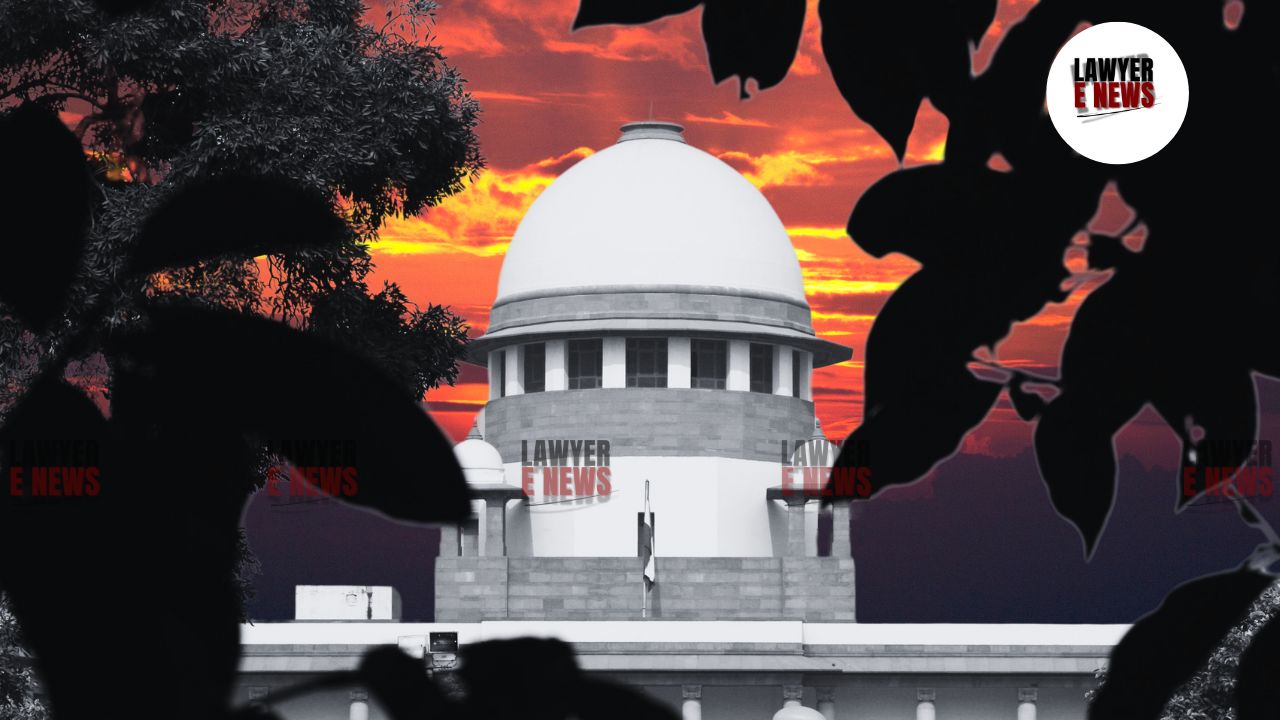-
by Admin
17 February 2026 4:58 AM



“Partition Suit Filed After 55 Years Without Challenging Registered Sale Deeds is Barred by Limitation” — In a decisive judgment Supreme Court restored the order of the Trial Court which had dismissed a partition suit on the ground of limitation. The Bench comprising Justice Sudhanshu Dhulia and Justice K. Vinod Chandran held that, “the suit filed by the plaintiffs was meaningless litigation, did not disclose a proper cause of action and was barred by limitation.”
The dispute revolved around ancestral property situated in Pattangere Village, Bengaluru, where the plaintiffs, grandchildren of one of the co-sharers, sought partition in the year 2023, claiming ignorance of an oral family partition allegedly effected in 1968. The defendants contended that the property had already been partitioned among the four sons of Boranna (the common ancestor) through a family settlement, which was reflected in the revenue records and had resulted in multiple registered sale deeds executed as far back as 1978.
The Court categorically rejected the plaintiffs’ stand, holding that, “Applying the settled principle of law, it can safely be assumed that the predecessors of the plaintiffs had notice of the registered sale deeds (executed in 1978), flowing from the partition that took place way back in 1968, by virtue of them being registered documents.”
The Court explained the significance of registration under the Registration Act and relied on Suraj Lamp Industries Pvt. Ltd. vs. State of Haryana, holding that, “Registration provides information to people who may deal with a property, as to the nature and extent of the rights which persons may have, affecting that property.” The Court declared that once the sale deeds were registered, “there is a presumption in law that the plaintiffs had knowledge of the transaction,” and no challenge was made for nearly five decades.
The Bench criticized the plaintiffs’ claim of recent knowledge of the sale, observing that, “In the lifetime of Mangalamma, these sale deeds have not been challenged, neither has partition been sought. Thus, the suit (filed in the year 2023) of the plaintiffs was prima facie barred by law.”
The Supreme Court also applied the principle laid down in Shri Mukund Bhavan Trust vs. Shrimant Chhatrapati Udayan Raje Bhonsle and Dahiben vs. Arvindbhai Kalyanji Bhanusali, reaffirming that courts are duty-bound to weed out “bogus litigation” at the threshold under Order 7 Rule 11 CPC. The Court held that, “When the plaint itself discloses that the suit is hopelessly barred by limitation, it is open to the Court to reject it under Order 7 Rule 11.”
Dealing with the appellate court's contrary order, the Supreme Court found that, “There were thus no justifiable reasons for the appellate court to have remanded the matter to the Trial Court.” It further remarked, “The plaintiffs cannot reignite their rights after sleeping on them for 45 years.”
Allowing the appeals, the Supreme Court set aside the High Court’s remand order and restored the Trial Court's dismissal of the suit under Order 7 Rule 11 CPC.
Date of Decision: April 2, 2025
